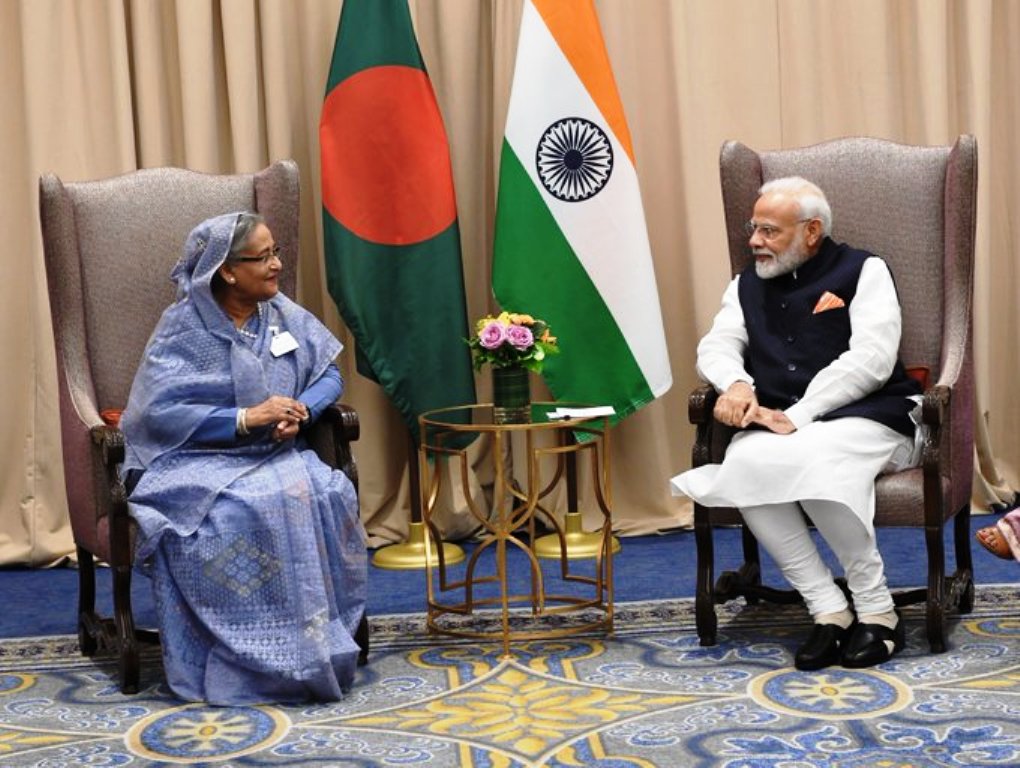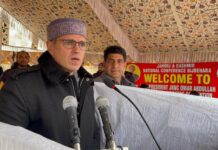SRINAGAR: Bangladesh began voting for its general elections early today January 6. The elections are overshadowed by pre-election violence, and the main opposition, the Bangladesh Nationalist Party (BNP), and other parties have declared a boycott.

The BNP has called for a nationwide strike, alleging the ruling Awami League’s use of “dummy” candidates to manipulate the election’s credibility, a claim denied by the ruling party.
Tensions escalated in Bangladesh since October, marked by a massive anti-government rally demanding Hasina’s resignation and a caretaker government for election oversight. The government argued against a caretaker government, citing a lack of constitutional provisions. Voting took place from 8 am to 5 pm local time, with results expected from early January 8.
The elections involve 119.6 million registered voters at more than 42,000 polling stations, featuring over 1,500 candidates from 27 political parties and 436 independent candidates. Notably, the opposition Jatiya Party (JAPA) and other parties in the ruling coalition, termed “satellite parties,” are among the contenders.
Pre-election violence, including a passenger train arson incident, has raised concerns.
Chief Election Commissioner Kazi Habibul Awal warned of potential election cancellation in case of irregularities. The government’s arrest of tens of thousands of rival politicians and supporters before the elections has been controversial, with authorities citing criminal charges rather than political affiliations.
Over 100 foreign observers, including three from India, are monitoring the elections amid tight security. Hasina, in power since 2009, won the last election in 2018 amid accusations of violence and rigging. Bangladesh faced economic challenges in 2022, leading to the government seeking International Monetary Fund support due to an energy crisis and high inflation.
In a parallel development, Hasina is poised to secure her fifth term as Prime Minister, with the opposition, particularly the BNP, boycotting the elections. Reports suggest a low turnout, and some voters claim coercion to vote for the ruling Awami League, facing threats of losing government benefit cards. The BNP, facing mass arrests, declared a general strike, terming the election a “sham.”
Hasina defended the democratic process, calling the BNP a “terrorist organisation” and emphasising the importance of democracy for development. The BNP reported widespread arrests of opposition cadres, while the government estimates a lower figure. Protests continued before the election, and extensive security measures, involving 175,000 police officers and 515,000 Ansar reserve force members, were implemented.
International observers are monitoring the election, and economic concerns, including food price spikes and blackouts, have fueled dissatisfaction. Hasina’s government, facing accusations of human rights abuses, has seen economic headwinds. The U.S. imposed sanctions on a police unit and commanders for extrajudicial killings.















